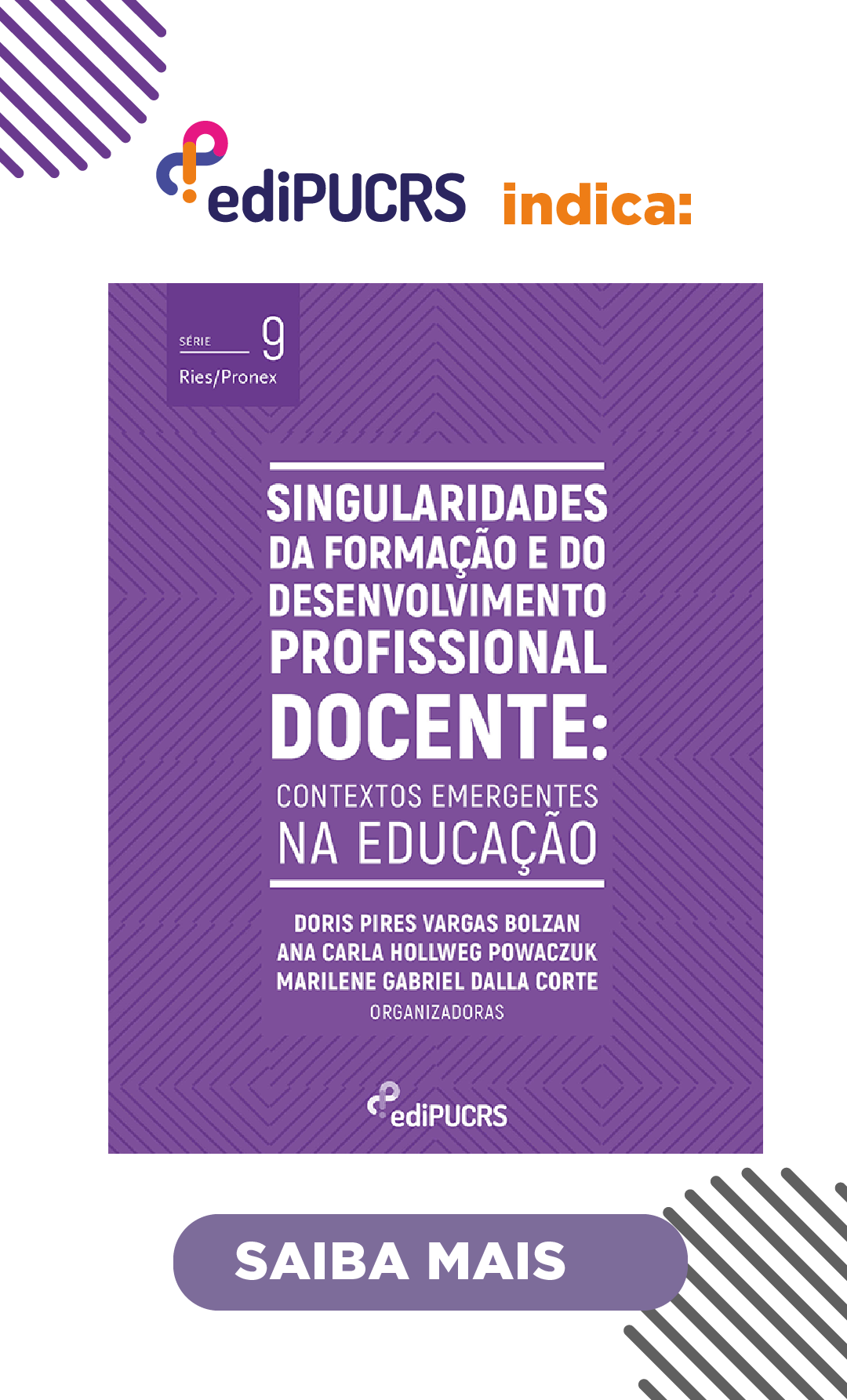Curriculum in action at a private school in Bahia
DOI:
https://doi.org/10.15448/2179-8435.2015.2.19821Keywords:
Curriculum, Private School, Education by principles.Abstract
This paper presents the results of a qualitative research conducted in a Christian denominational private school, located in the municipality of Vitoria da Conquista. The text focuses on the curriculum organization in order to examine how education by principles set in the curriculum in action this school. Data were collected through a qualitative research which included class observations of elementary school, document analysis and interviews with teachers and coordination. The results of the interviews and observations point to understand that education for principles occurred not as a methodology, as well as proclaimed in the curriculum organization proposed by biblical principles.
Downloads
References
ALVES, Monica P. A educação por princípios bíblicos: um método cristão de ensinar? Anais do Congresso Internacional da
Faculdades EST. São Leopoldo, EST, 2012. p. 157-179.
ASSOCIAÇÃO DAS ESCOLAS CRISTÃS DE EDUCAÇÃO POR PRINCÍPIOS. Disponível em: . Acesso em:
set. 2014.
BONAFÉ, Juame M.; RODRÍGUEZ, Jésus R. O currículo e o livro didático: uma dialética sempre aberta. In: SACRISTAN, J. G. (Org.).
Saberes e incertezas sobre o currículo. Porto Alegre: Penso, 2013.
BORGES, Inez Augusto. Educação e personalidade: a dimensão sócio- histórica da educação. São Paulo: Editora Mackenzie, 2002.
CHIZZOTTI, Antonio. Pesquisas em ciências humanas e sociais. 2. ed. São Paulo: Cortez, 1998.
DUSSEL, I.; CARUSO, M. A invenção da sala de aula: uma genealogia das formas de ensinar. São Paulo: Moderna, 2003.
ESCOLA CRISTO REIS. Projeto político pedagógico. Vitória da Conquista, 2005.
FONSECA, Selva G. O trabalho do professor na sala de aula: relações entre sujeitos, saberes e práticas. Rev. Brasileira de Est.
Pedagógicos, Brasília, v. 91, n. 289, p. 390-407, 2010.
FORQUIN, J. C. Escola e cultura: as bases sociais e epistemológicas do conhecimento escolar. Porto Alegre: Artmed, 1993.
FUNDAÇÃO PARA EDUCAÇÃO CRISTÃ AMERICANA. Disponível em: . Acesso em: 18 dez. 2014.
GERALDI, Corinta Maria Grisolia. Currículo em ação: buscando a compreensão do cotidiano da escola básica. Revista Pro-Posições,
Faculdade de Educação da UNICAMP, SP. v. 5, n. 3, p. 111-132, nov. 1994.
HAMILTON, D. Sobre as origens dos termos classe e curriculum. Teoria e Educação, v. 6, 1992.
LAHIRE, B.; VINCENT, G.; THIN, D. Sobre a história e a teoria da forma escolar. Educação em Revista, n. 33, 2001.
MOREIRA, Antonio Flávio Barbosa; SILVA, Tomaz Tadeu da (Orgs.). Currículo, Cultura e Sociedade. 7. ed. São Paulo: Cortez, 2002.
SACRISTÁN, J. Gimeno. O currículo: uma reflexão sobre a prática. 3. ed. Porto Alegre: Artmed, 1998.
SACRISTÁN, J. Gimeno. O que significa o currículo? In: ______. (Org.). Saberes e incertezas sobre o currículo. Porto Alegre:
Penso, 2013.
SACRISTÁN, J. Gimeno; GÓMEZ, A. I. Pérez. Compreender e transformar o ensino. 4. ed. Porto Alegre: Artmed, 1998.
SACRISTÁN, J. Gimeno; GÓMEZ, A. I. Pérez. O aluno como invenção. Porto Alegre: Artmed, 2006.
SILVA, Tomaz Tadeu da. Documentos de identidade: uma introdução às teorias do currículo. 3. ed. 1ª reimp. Belo Horizonte: Autêntica, 2010.
SILVA, Tomaz Tadeu da. Identidades terminais: as transformações na política da pedagogia e na pedagogia da política. Petrópolis:
Vozes, 1996.
SILVA, Tomaz Tadeu da; MOREIRA, Antonio Flavio B. (Orgs.). Territórios contestados: o currículo e os novos mapas políticos e
culturais. 2. ed. Petrópolis: Vozes, 1995.
Downloads
Published
How to Cite
Issue
Section
License
Copyright
The submission of originals to Educação Por Escrito implies the transfer by the authors of the right for publication. Authors retain copyright and grant the journal right of first publication. If the authors wish to include the same data into another publication, they must cite Educação Por Escrito as the site of original publication.
Creative Commons License
Except where otherwise specified, material published in this journal is licensed under a Creative Commons Attribution 4.0 International license, which allows unrestricted use, distribution and reproduction in any medium, provided the original publication is correctly cited.





